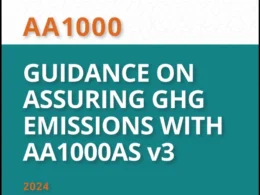The Science Based Targets initiative (SBTi) has released a draft revision of its Corporate Net-Zero Standard, inviting public consultation on the proposed updates. The new framework aims to provide a science-backed, pragmatic approach to accelerate corporate net-zero commitments worldwide.
Informed by the latest climate science, regulatory developments, and corporate feedback, the draft standard seeks to broaden participation beyond the 3,000 companies already committed to net-zero targets. Through public consultation, SBTi aims to refine the standard to ensure it remains both rigorous and practical for businesses.
Key proposed revisions
- Greater Focus on Action – The revised standard separates Scope 1 and Scope 2 emissions to reflect the distinct challenges of decarbonisation in each category. Companies would be required to transition to low-carbon electricity no later than 2040.
- New Pathways for Scope 3 Emissions – Addressing a major hurdle for businesses, the draft introduces flexible options for Scope 3 reductions, allowing companies to set targets for green procurement and revenue generation instead of direct emissions reductions. The approach prioritises suppliers in high-emission sectors where companies have the most influence.
- Scaling Carbon Removals and Climate Finance – Beyond direct decarbonisation, the standard explores options to address residual emissions, including formal recognition of companies investing in Beyond Value Chain Mitigation (BVCM) and interim carbon removal targets.
- Enhanced Transparency and Accountability – Companies will be required to track and publicly report progress against their targets, reinforcing corporate responsibility in the transition to net-zero.
- Simplified Requirements for SMEs and Developing Markets – Streamlined criteria tailored to medium-sized enterprises and businesses in emerging markets will facilitate wider adoption of voluntary corporate climate action.
A smooth transition to the new standard
To support companies already working with the existing Corporate Net-Zero Standard (V1.2) and Near-Term Criteria (V5.2), SBTi will develop a transition pathway, ensuring businesses can continue setting targets with confidence as the new framework evolves.
The public consultation will run from Tuesday 18 March to Sunday 1 June, with details available in the SBTi Consultation Guide and an upcoming webinar. Input from businesses, policymakers, and climate experts will be critical in shaping the final version.
Leadership perspectives
Francesco Starace, Chair, SBTi, emphasised the importance of collective action: “The SBTi has always been at the forefront of climate action. This draft standard tackles complex and emerging challenges, setting the stage for companies to accelerate towards net-zero. Engaging stakeholders across the ecosystem ensures a standard that is both rigorous and practical. With a limited carbon budget, businesses must act swiftly to drive transformation, unlock growth, and build investor confidence.”
Alberto Carillo Pineda, Chief Technical Officer, SBTi, highlighted the collaborative nature of the process: “This draft reflects insights from thousands of businesses and experts worldwide. Public consultation will be crucial in refining the standard to maximise its global impact.”
Dr Kornelis Blok, Chair, SBTi Technical Council, underlined the scientific foundation of the revisions: “This framework aligns with the latest research and best practices. The rigorous review by our Technical Council ensures that it is both robust and practical, providing businesses with a valuable tool to drive meaningful change and contribute to global sustainability goals.”
With corporate climate action more urgent than ever, the revised standard aims to provide companies with a clear, actionable pathway to net-zero, balancing ambition with feasibility.















